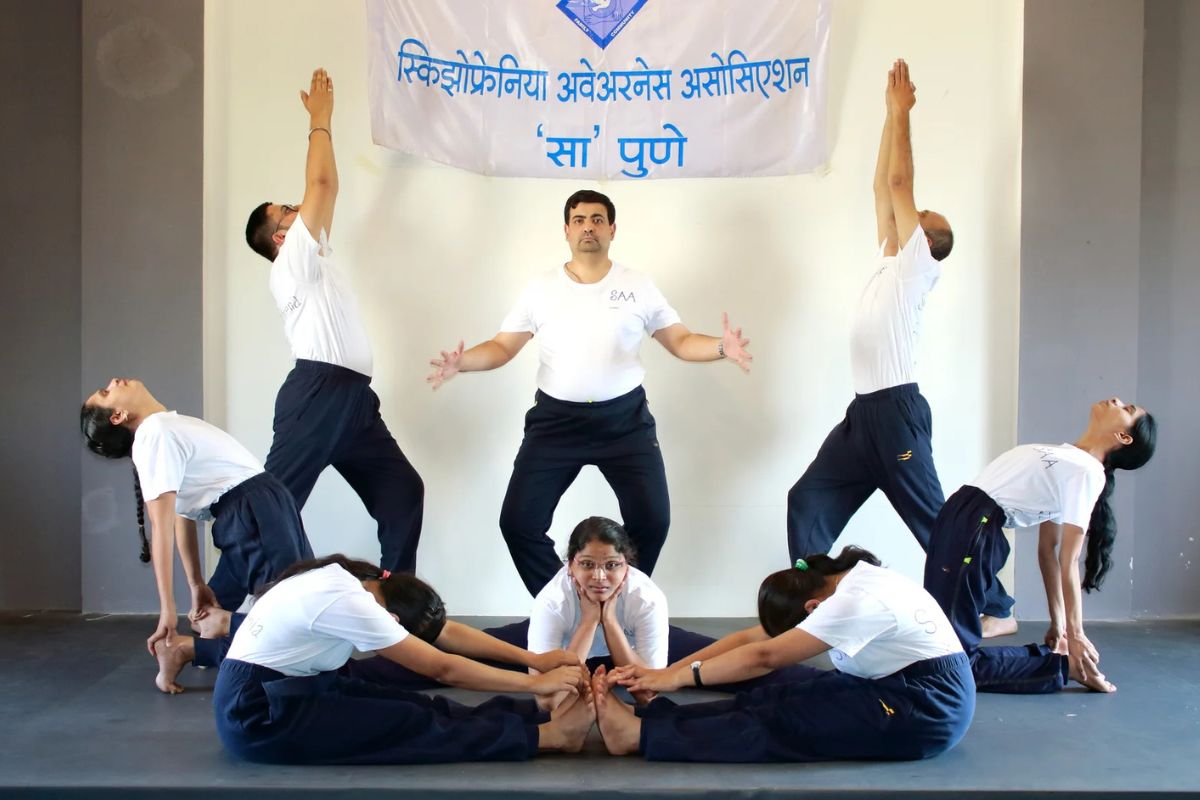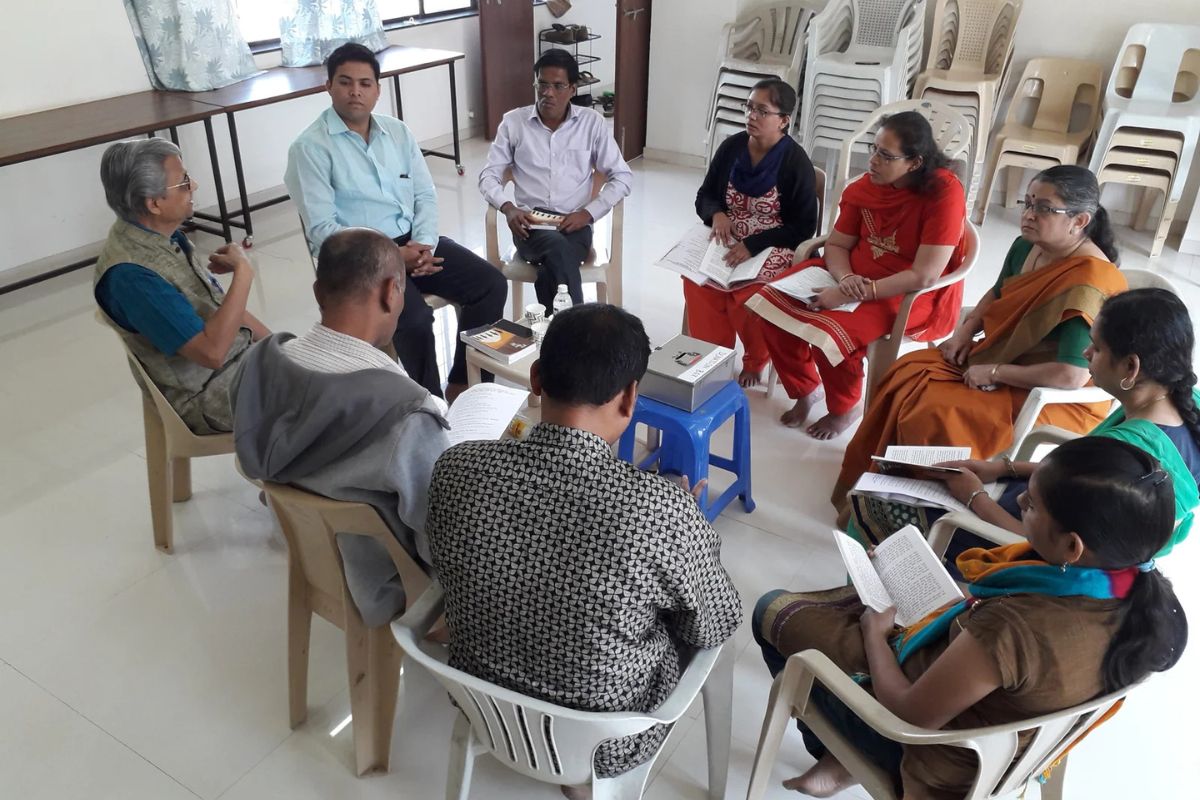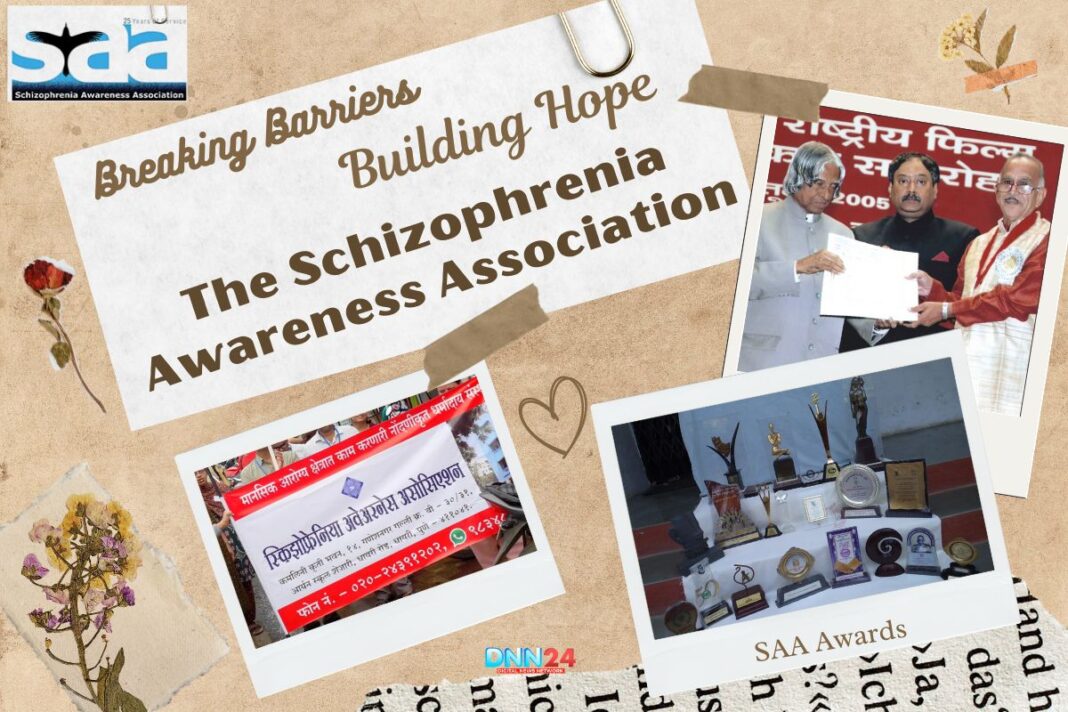A Love Story That Changed Mental Health in India
In the vibrant lanes of Pune, Maharashtra, 1997 witnessed an extraordinary tale of love conquering prejudice – a story so powerful that it would spark a mental health revolution across India and give conception to the life-changing journey of the Schizophrenia Awareness Association (SAA). When Late Dr. Jagannath Wani, a Canadian academic and social activist, faced his wife’s schizophrenia diagnosis, a psychiatrist coldly advised him to divorce her. But Dr. Wani chose love over stigma, becoming her devoted caregiver instead. This personal journey of compassion sparked the birth of the Schizophrenia Awareness Association (SAA), an organization that would become a beacon of hope for countless families across the nation.
Dr. Wani’s experience opened his eyes to the alarming shortage of awareness and resources for schizophrenia, not just in Canada, where he lived, but more critically in India, where mental illness carried devastating social stigma. He realized that families were suffering in silence, abandoned by society, and lacking proper support systems. SAA was born from this urgent need to create a supportive environment where individuals with schizophrenia and their families could find understanding, resources, and dignity. The organization’s unique user-survivor and caregiver-led model reflects a revolutionary approach that believes in the inherent strength and capabilities of those affected by mental illness.
Schizophrenia Awareness Association Fighting Giants: The Uphill Battle Against Stigma and Superstition
Since 1997, SAA has been waging a relentless war against some of India’s most entrenched social challenges surrounding mental health. The biggest enemy they face is a deep-rooted social stigma that treats mental illness as a family shame rather than a medical condition requiring support. In many Indian communities, families hide their affected members, denying them proper treatment and social interaction out of fear of social ostracism.

Perhaps even more damaging are the widespread misconceptions and superstitions that plague Indian society’s understanding of schizophrenia. Symptoms are often misinterpreted as supernatural phenomena, with families seeking help from tantric and godmen instead of qualified medical professionals. These beliefs not only delay crucial early intervention but also subject patients to harmful traditional “treatments” that worsen their condition. The Indian media’s sensationalized portrayal of mental illness as dangerous and unpredictable further compounds these challenges, creating a vicious cycle of fear and discrimination. Additionally, limited access to mental health services, especially in rural areas, combined with insufficient government support and policy gaps, creates a perfect storm of obstacles that SAA works tirelessly to overcome through grassroots advocacy and community engagement.
Schizophrenia Awareness Association Empowering Voices: When Survivors Lead the Way
SAA’s revolutionary approach puts those who understand mental illness best – the survivors and their families – at the heart of decision-making and daily operations. This isn’t just token representation; it’s a fundamental shift in how mental health organizations operate in India. Family caregivers are actively involved through peer support group meetings held every first and third Saturday of each month, where they share their real experiences, challenges, and victories in online sessions that connect people across geographical boundaries.

These caregivers aren’t just recipients of support; they become leaders and advocates themselves. SAA encourages and trains them to create similar support groups in their communities, effectively multiplying the organization’s reach and impact. The model recognizes that those who have walked the difficult path of caring for someone with schizophrenia possess invaluable insights that no textbook can provide. Through various workshops and volunteer opportunities within SAA, caregivers transform from isolated individuals struggling alone to empowered advocates creating change in their communities. This peer-to-peer approach creates authentic connections and reduces the hierarchical gap often seen in traditional healthcare settings, making support more accessible and relatable for new families entering this journey.
Schizophrenia Awareness Association Healing Through Creativity: The Day Rehabilitation Revolution
SAA’s day rehabilitation center represents a paradigm shift from traditional institutional approaches to mental health recovery. Rather than focusing solely on medication and clinical interventions, the center embraces a holistic philosophy that recognizes creativity and skill-building as powerful healing tools. Service users engage in diverse vocational and creative activities, including arts and crafts, painting, stitching, and cooking – activities that rebuild not just skills but also self-confidence and purpose.
The therapeutic interventions offered go far beyond conventional approaches. While evidence-based treatments like Cognitive Behavioral Therapy (CBT) and Rational Emotive Behavior Therapy form the clinical foundation, SAA enriches the healing process with innovative, supportive therapies. Art-based therapy, Dance Movement Therapy, Animal Assisted Therapy, Music Therapy, Theater of the Oppressed, and Drum Therapy create multiple pathways for expression and healing.
Each service user receives personalized activity plans tailored to their interests, cognitive abilities, and recovery goals, ensuring that treatment isn’t one-size-fits-all but deeply individualized. Regular counseling sessions address personal challenges while family involvement ensures that the supportive environment extends beyond the center into homes, creating a comprehensive ecosystem of care that recognizes recovery as a community effort rather than an individual struggle.
Schizophrenia Awareness Association The Magic of Expression: Art, Music, and Dance as Medicine
In SAA’s rehabilitation programs, expressive therapies aren’t considered supplementary activities but essential components of healing that address the whole person rather than just symptoms. Art therapy provides a non-verbal outlet for emotions that might be difficult to express through words, allowing individuals to externalize their internal experiences and gain new perspectives on their challenges. Through colors, shapes, and creative expression, service users often discover aspects of themselves that had been buried under the weight of their illness.
Music therapy taps into universal human responses to rhythm and melody, creating opportunities for emotional regulation, social connection, and cognitive stimulation. Whether through listening, singing, or playing instruments, music becomes a bridge between inner experiences and outer expression. Dance Movement Therapy combines physical activity with emotional expression, helping individuals reconnect with their bodies and develop better self-awareness while building confidence through movement.
These expressive therapies complement traditional treatments by addressing emotional, cognitive, and social aspects of recovery simultaneously. The integration creates a comprehensive healing environment where service users can explore their creativity, connect with others who share similar experiences, and develop new coping strategies. This holistic approach recognizes that mental health recovery involves not just symptom management but the rebuilding of identity, purpose, and joy – elements that expressive therapies uniquely nurture and strengthen.
Schizophrenia Awareness Association Building Independence: Economic Rehabilitation and Real-World Integration
SAA’s commitment to comprehensive recovery extends beyond therapeutic interventions to address one of the most challenging aspects of mental health recovery – economic rehabilitation and sustainable independence. The organization understands that meaningful employment isn’t just about earning money; it’s about dignity, purpose, and social integration. SAA actively collaborates with employers who demonstrate sensitivity to the needs of individuals with mental illness, creating partnerships that benefit both service users and forward-thinking companies willing to embrace inclusive hiring practices.
The organization provides ongoing counseling support to help service users navigate workplace challenges, manage stress, and maintain their mental well-being while building careers.
This isn’t a one-time job placement service but a sustained support system that recognizes the ongoing nature of mental health management. SAA also plays a crucial educational role with families, informing them about disability certificates issued by the government and various schemes available to support individuals with disabilities. Some success stories include service users securing employment with supportive employers, others engaging in self-employment ventures, and one individual contributing significantly to his family’s business. The organization recognizes that managing schizophrenia involves fluctuating periods of stability and setbacks, requiring a holistic support network involving psychiatrists, counselors, employers, and families working together to create sustainable pathways to independence and meaningful participation in society.
Advocacy That Changes Laws: From Personal Pain to Policy Change
SAA’s impact extends far beyond individual healing to systemic change at national and international levels. The organization’s advocacy work demonstrates how personal experiences can drive legislative transformation when channeled through organized effort and persistent activism. A prime example is the role played by SAA’s former president, Mr. Amrit Kumar Bakhshy, whose daughter lived with schizophrenia. His personal experience and dedicated activism contributed significantly to the development of the Mental Health Care Act of 2017, which revolutionized India’s approach to mental health by emphasizing the rights of persons with mental illness, including access to treatment, protection from inhuman treatment, and the fundamental right to live with dignity.
SAA’s advocacy efforts also include scholarly contributions such as the paper “Mental Illness in India: Present Status, Expectations and Recommendations,” published by Pune International Centre and presented by Ms. Aarti Pandit and Mr. C. Ravindranath in June 2024. The organization strategically uses significant dates to maximize public awareness, organizing events on World Schizophrenia Awareness Day (May 24), Erwadi Day (August 6), observed as Human Rights Day for Persons with Mental Illness, Caregivers’ Day (September 10), and World Mental Health Week. These events feature distinguished speakers and create platforms for policy discussions while influencing public opinion and challenging societal attitudes toward mental illness through sustained, strategic communication efforts.
Also Read: Pad Squad: Spreading Menstrual Dignity Across India’s Communities
You can connect with DNN24 on Facebook, Twitter, and Instagram and subscribe to our YouTube channel.



